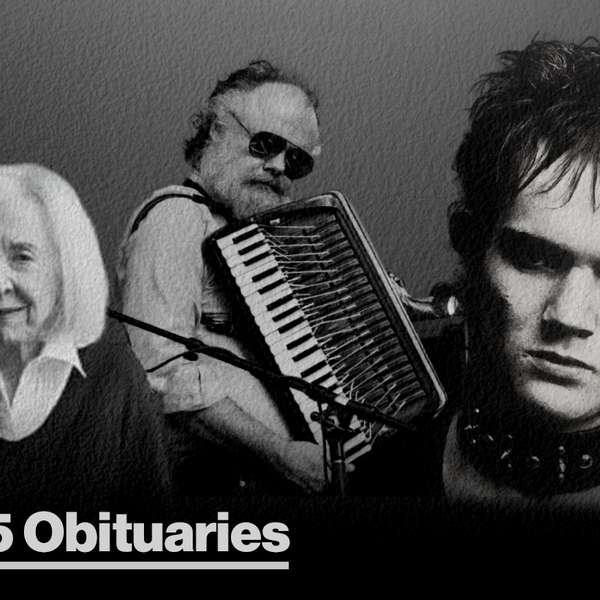
By David Farrell
Bruce Allen's Reality Check: Working for the Weeknd
Experts, industry say Broadcast Act’s modernization needs improvement
Bill C-10 would create a new category for online broadcasting within the Broadcasting Act, thus allowing Canada’s broadcast regulator, the Canadian Radio-television and Telecommunications Commission (CRTC), to seek financial contributions from players like Netflix, Spotify, Crave, and Disney Plus.
Online broadcasting refers to services that transmit programs over the internet, but doesn’t include social media or user-generated content.
The bill would give the CRTC powers to: regulate these online steaming services; mandate contribution payments for the creation of Canadian content; order discoverability requirements; and introduce fines for non-compliance.
The legislation is a regulatory mess, said Conservative MP Gerald Soroka, speaking in the House earlier on Friday: It’s too broad, it lacks consequence, and it leaves the CRTC too much room to establish its own standards.
It also risks affecting online news sites that offer video content, Soroka said. – Rachel Emmanuel, iPolitics
Why the secrecy on Bill C-10?: How the Liberals abandoned their commitment to consultation, and transparency
I have not been shy about expressing my concerns with the Bill C-10, the Broadcasting Act reform bill. From a 20 part series examining the legislation to two podcasts to a debate with Janet Yale, I have actively engaged on policy concerns involving regulation that extends far beyond the “web giants”, the loss of Canadian sovereignty over broadcast ownership, the threat to Canadian intellectual property, and the uncertainty of leaving many questions to the CRTC to answer. Yet beyond the substance of the bill, in recent days an even more troubling issue has emerged as Canadian Heritage Minister Steven Guilbeault, his Parliamentary Secretary Julie Dabrusin, and the Liberal government abandon longstanding commitments to full consultation, transparency, and parliamentary process.
Last week, I appeared before the Standing Committee on Canadian Heritage as part of what it is calling a “pre-study” on Bill C-10. In this case, “pre-study” is euphemism for avoiding the conventional parliamentary process. Bill C-10 has not yet passed second reading in the House of Commons and has not been referred to committee for study. There have been extensive debates in the House and last week Conservative MP Michael Kram called for the bill to be withdrawn, noting that politicians could do Canadians a lot of good by “rewriting it from scratch.” That move drew criticism from Guilbeault during an interview at the CMPA Prime Time event, as he called for pressure on the Conservatives to support referring the bill to committee. There are instances of pre-study, but doing so concurrently with second reading makes no sense since a pre-study allows for a wide range of amendments, whereas after second reading the permitted amendments are more limited.
In an earlier era (or with a different government), the prospect of conducting a study of the bill while simultaneously engaging in second reading would garner loud objections. In fact, at the Heritage Committee hearing last week, opposition MPs wondered why they were already being asked for amendments to the bill when they had yet to hear from witnesses, much less conduct an actual study of the bill. Indeed, for a government that once prized itself on robust consultation, it seemingly now wants to avoid any genuine consultation on Bill C-10, content to have potential amendments presented through lobbyists, rather than on the public record in open hearings.
The secrecy does not end there. At the same hearing (I was a witness and waited patiently for these issues to play out), Conservative MPs raised questions about promised data on how the government had arrived at claims that the bill will generate over $800 million in new money. Leaving aside the fact that Guilbeault has often inflated that figure to over $1 billion, there has no public disclosure about the source of this claim. Cartt.ca reports that officials told the committee that the calculations could be “confusing” without a verbal explanation. Days later, Dabrusin told the committee that in fact the data had been provided to the committee late last year but perhaps not distributed to committee members.
When I was questioned by Conservative MP Kevin Waugh during my appearance before the committee, he again raised concerns about the claim. Dabrusin interjected with a point of order to make it clear that the data had been provided to the committee, albeit not distributed to MPs. What made the exchange so striking was that Dabrusin – a parliamentary secretary – seemingly did not give any thought to the fact that the data has not been made publicly available. Promoting long overdue disclosures to a handful of MPs while the public is kept in the dark is hardly the stuff worthy of praise or a point of order. – Michael Geist blog
Bell Media sports a few laughs in its latest round of cuts
Bell has cancelled its all-sports format on radio stations in Vancouver, Winnipeg and Hamilton, bringing the number of job cuts to the company’s broadcast brands to as high as 300 in the past seven days.
TSN 1040 AM in Vancouver, TSN 1290 AM in Winnipeg and TSN 1150 AM in Hamilton will no longer be all-sports stations, Bell announced on Tuesday.
In a media release, the conglomerate said Hamilton's 1150 AM will become a BNN Bloomberg station, covering business, innovation, technology and sports.
In Vancouver, the morning show cut away during a commercial break Tuesday before it was announced that the station would be "reprogrammed" as of Friday without elaborating.
Bell Media president Wade Oosterman told all staff in an email Tuesday that the Vancouver and Winnipeg channels will be converting to a "funny format, which has already proven highly successful in markets like Hamilton and Calgary with its stand-up comedy content." – Pete Evans, CBC News
Bell Canada’s cuts were a shoddy way to treat people
Only days after encouraging Canadians to support mental health on Let’s Talk Day, Bell inflicted enormous emotional trauma into the lives of hundreds of Canadian families. – Andrew Caddell, Hill Times
StatsCan provincial death counts
From January to November 2020, there were an estimated 259,836 deaths in Canada, representing an excess of 12,067 deaths above and beyond what would have been expected if there was no pandemic. This implies that there have been about 5% more deaths than expected in that period, after accounting for changes in the population such as aging. In comparison, for the same period, there were 244,375 deaths in 2018 and 243,551 in 2019. The impact of the pandemic on mortality in Canada has evolved since the spring, affecting a broader array of populations, including younger age groups and those living in the western provinces.
Canada’s visa application centre in Beijing run by Chinese police
Chinese police own a company that collects details of people applying for visas to Canada and numerous other countries, giving Beijing security services a direct stake in the processing of private information provided by people planning travel outside China. – Nathan VanderKlippe, The Globe and Mail
Pat Holiday’s ‘How to be a Radio PD – Part B’
Steve Waxman waxes enthusiastically about Trouser Press and its founder Ira Robbins
I’ve been a music fan for most of my life but I didn’t really get into rock music until the mid seventies and the seventies were a great time to be a rock fan. You not only had your favourite bands but you also had your favourite magazine and there were so many to choose from. There was Circus and Creem and Hit Parader and Rock Scene and Rolling Stone, of course. And, if you were a little more intellectual, you might read Crawdaddy or find an article in Mother Jones or even spend a little extra money on something from the UK like the NME. And, as you read each article, you got to know and become a fan of writers like Sylvie Simmons, David Fricke, Lisa Robinson and, of course, the late, great Lester Bangs. These were the names of the people that turned us onto the music that became indelible in our lives.
Add to that list the name Ira Robbins who, in 1974, along with friends Dave Schulps and Karen Rose created Trouser Press as a fanzine that they sold by hand outside of concerts in New York City. Trouser Press eventually found its way onto magazine racks and, finally, in 1978 into my hands when I saw Rick Nielsen of Cheap Trick on the cover. What I found fascinating about Trouser Press was that reading the magazine always felt like the kinds of conversations me and my friends had on the weekends as we played our new favourite records for one another.
All 96 of the original issues of Trouser Press are available to reach online at trouserpress.com. The site has a great search function so that you can actually follow the life of your favourite band as well as the birth of punk, new wave and underground music. It’s as if you were there. In addition to continuing his life as a music journalist, Ira has written album notes for a number of artists as well as two novels. His latest book, Marc Bolan Killed in Crash is the subject of Part two of our interview.
Read the full interview transcript at imstevewaxman.com or listen here.
Brookfield pursues $7.5B fund devoted to ‘Net-Zero’ shift
Brookfield Asset Management Inc. plans to raise at least $7.5 billion for a new climate-focused fund, as the Canadian investment firm builds out an ESG business led by former Bank of England Governor Mark Carney.
The Brookfield Global Transition Fund seeks to take advantage of accelerating interest in solutions to the global climate crisis, with a focus on renewable power and other investments that help cut carbon emissions.
It would be one of the largest -- if not the largest -- funds in a sector that’s attracting a flood of new capital. – Jason Kelly & Derek Decloet, Bloomberg
Democratic impeachment managers' video
A video showing events from the Jan. 6, 2020 Capitol riot was produced by the U.S. House Democratic impeachment managers for their case against former President Donald Trump. The video was played at the beginning of the Senate impeachment trial of Trump on Tuesday, Feb. 9, 2020. – Dallas Morning News & CSPAN
The $2.7B case against Fox News
“The Earth is round. Two plus two equals four. Joe Biden and Kamala Harris won the 2020 election for president and vice president of the United States.” So begins the 280-page complaint filed by Smartmatic, an election software company, against the Fox Corporation.
After President Donald Trump’s election loss, the television network was used as a megaphone by election conspiracy theorists, including some of Fox News’s own anchors and the Trump lawyers Rudy Giuliani and Sidney Powell.
Today, we hear from Antonio Mugica, Smartmatic’s C.E.O., and the lawyer Erik Connelly about the $2.7 billion case they are bringing against the corporation. – The New York Times podcast
The American tech behind the Navalny video of 'Putin's Palace'
It is unclear whether GPS “jamming” devices were used to shield the airspace around the highly-secure Black Sea property or how the Autel drone might have overcome such technology.
A drone retailer in Moscow told RFE/RL that Autel drone flights are not currently limited by geofencing in Russia but believes that after the explosive video of "Putin's Palace" that the American-made drone captured, restrictions are likely to be added to the drones in Russia "sometime soon." – Amos Chapple, Radio Free Europe
Beijing 2022 Winter Olympics labelled 'Genocide Games'. Nations consider boycott over human rights issues
Building elaborate venues for Beijing's 2022 Winter Olympics is the easy part for China, just as it was for the city's Summer Olympics in 2008. The competition venues are ready, and non-competition sites will be completed this summer with the Games set to open one year from Thursday on February 4, 2022.
But these Olympics are already scarred by accusations of rights abuses including genocide against more than one million Uighurs and other predominantly Muslim ethnic groups in the western Xinjiang region. And unlike 2008, a new generation of Olympic athletes is speaking out on social issues and discrimination and challenging IOC rules against using the Olympics as a stage. – Stephen Wade, Stuff
RIP
Ted Randal, an influential radio consultant during J. Robert Wood’s reign at CHUM AM, was later appointed program director of CHFI in 1977. Prior to he had been PD at CJJD Hamilton. Randal later took over as vice president and general manager when George Grant left CHFI-FM and stayed in this post until 1982. After a 40-year career in broadcasting that included stints in the US and Australia, in 1992 he settled in Nova Scotia and became a water colourist of note, at one point serving as president of the Yarmouth Art Society. In September 2012, after six years of adventurous travel, sailing up and down the east coast, moved to Victoria, BC, settling in the James Bay area and becoming a resident of what arguably may be the smallest professional art studio in the world and Artist in Residence at the Coast Harbourside Hotel in Victoria. One unconfirmed source pegs his age at 95.
Larry Flynt — the notorious porn peddler who built a smut empire out of his “Hustler” magazine and fashioned himself into a champion of the First Amendment — died on Wednesday. He was 78.
















